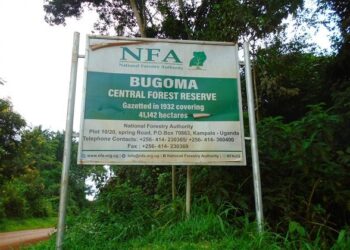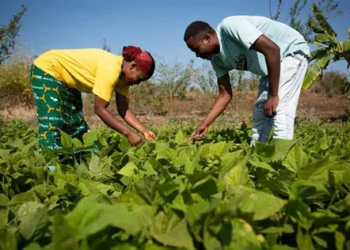OPINION
Uganda boasts one of the richest histories of coffee production, holding the title of the largest coffee producer in Africa and the ninth largest globally. Coffee production is not just a source of income for countless households but also a crucial driver of economic growth in Uganda. However, the sector faces numerous challenges, including aging farmer populations and insufficient youth engagement. Encouraging youth participation in the coffee value chain presents a significant opportunity for transformative change, increasing productivity, enhancing quality, and securing the future of Uganda’s coffee industry. This article explores the potential for youth involvement in the coffee sector and suggests ways the government can intervene effectively.
The Importance of Youth Participation
Economic Opportunities
With more than 78% of Uganda’s population under the age of 30, harnessing the energy and innovation of the youth could lead to the revitalization of the coffee sector. Engaging young people in various value chain segments – from cultivation and processing to marketing and export – can generate substantial economic opportunities.
Knowledge and Innovation: Youth are generally more open to adopting new technologies and practices that can enhance productivity. Their participation can lead to the implementation of modern agricultural techniques, better marketing strategies, and innovative business models.

Sustainability and Resilience
Incorporating youth into the coffee sector can foster a more sustainable approach to agriculture. Young farmers may prioritize sustainable practices to address climate change, ensuring the long-term viability of coffee production in Uganda.
Current Challenges in Youth Engagement
Despite the potential benefits, several barriers hinder youth engagement in the coffee value chain:
Limited Access to Land and Resources: Young people often struggle to access land, financing, and other resources necessary for coffee farming.
Lack of Training and Support: Many youths lack the necessary education and training in modern agricultural techniques and business practices.
Perceptions and Cultural Attitudes: There is a prevailing notion that farming is a less respectable profession, leading to negative perceptions among the youth about engaging in agriculture.
Government Intervention Strategies:
The Ugandan government has a pivotal role in addressing these challenges and facilitating greater youth participation in the coffee value chain. Here are several ways the government can intervene directly:
Access to Land and Credit Facilities
Land Reforms: Establishing policies that enable equitable land access for young farmers could encourage more youth to engage in coffee cultivation. This might involve leasehold agreements that allow youth to farm land without purchasing it outright.
Credit Programs: Creating targeted financial products such as low-interest loans and grants accessible to young farmers will alleviate initial funding challenges, enabling them to invest in coffee production.
Training and Capacity Building
Agricultural Education Programs: Collaborating with educational institutions to offer relevant courses in agricultural practices and business management tailored to the coffee industry can equip youth with essential skills and knowledge.

Extension Services: Strengthening agricultural extension services focused on youth inclusivity will provide young farmers with hands-on training and resources to implement modern farming techniques.
Promotion of Youth Cooperatives: The government could support the formation of coffee-producing cooperatives specifically targeting young people. This could help reduce the risks associated with farming while providing collective marketing opportunities. This is something that Roy Coffee Processors and Exporters Co Ltd is at the forefront of through its Roy Coffee Youth Cohort Project.
Investment in Infrastructure: Investment in processing and storage facilities can enable cooperatives to add value to their coffee, increasing profits and attracting young people to the industry.
Awareness Campaigns
Changing Perceptions: Public campaigns highlighting successful young farmers and the importance of coffee in Uganda’s economy could help shift cultural attitudes and encourage other youth to consider careers in agriculture.
Showcasing Innovation: Organizing events such as coffee fairs and innovation competitions for young entrepreneurs can inspire creative solutions and increase engagement in the sector.
Partnerships with Private Sector and NGOs
Collaboration:Forming partnerships with private companies and NGOs can facilitate investment in youth programs and initiatives aimed at enhancing youth participation in the coffee value chain.
Sustainability Initiatives: Engaging youth in discussions about sustainable practices and funding their participation in initiatives focused on responsible coffee production will foster a sense of ownership and responsibility.
Conclusively, the future of Uganda’s coffee industry hinges on the active participation of its youth. By addressing the barriers to engagement and implementing targeted interventions, the government can unlock the potential for economic transformation, innovation, and sustainability within the sector. Empowering the youth not only holds the promise of revitalizing Uganda’s coffee industry but also ensures that the rich heritage of coffee production continues to thrive for generations to come. Through collective effort and policy action, Uganda can cultivate a new generation of coffee leaders ready to take on the challenges and opportunities of the global coffee market.
By Aloysious Ssendegeya
The writer is founder & CEO of Roy Coffee Processors and Exporters Co Limited
E-mail: saloysious@roycoffeeug.com








































